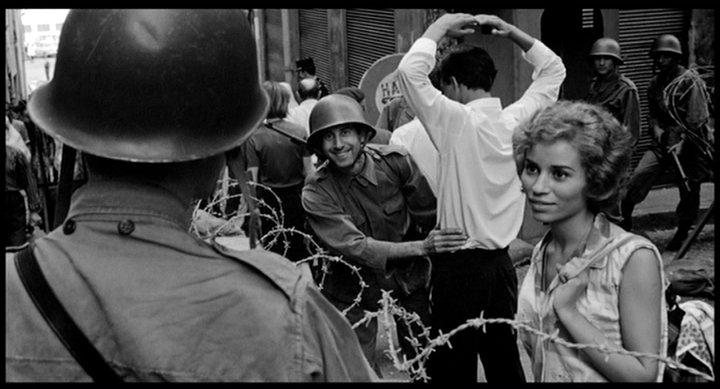Watching and hearing Justin Simien talk about his film brought up stereotyping in my mind. I noticed many examples of how he cleverly used satire to show stereotypes. For example, residence life is stereotyped by Armstrong/Parker House residents are all black. How does that happen with random housing? They are their own community and do not like the white kids coming into there dining hall. At their dining hall, they eat fried chicken for lunch, which is a big stereotype. This puts all the black people on campus together which is a large stereotype on campus’s. It is saying that black kids hang out with only black kids. In addition, Coco seems invisible to guys at school because she is black on a mainly white campus. Although she is attractive, no boys are looking at her or talking to her. She gets ignored, this is a stereotype that white men see past black women. This gets to the point of race as well as the clever jokes that bring up the black stereotype like in Coco’s blog.
There is also a burden of how they are expected to act, you see it through many of the characters. This relates to do the right thing because Spike Lee uses racial stereotyping a lot in his film. For example, the music choice and clothing that black people wear compared to the asians.
There is a connection in both films because the stereotyping is explosive. There is an us verses them feel in them, that the whites have a more of belonging but there is a fight for belonging by both sides. There brings up a race conversation which makes an impact on society and opens up others to ‘talk’, or tweet, etc. about it. There is much energy and emotion of the film even after its viewing.

I definitely agree that both Spike Lee and Justin Simien used different stereotypes in their films. However, I do believe that Simien decided to use more stereotypes that Spike Lee did, both stereotypes against blacks and whites, simply due to the fact that his movie was more satirical than Lee’s was. Though Lee did include some stereotypes in his film, Simien made some of the stereotypes he used more open and comical than Lee did in his film, due to the Dear White People Radio Show. However, both films did have stereotyping in them and both addressed serious issues despite the differences in the films themselves and the difference in the time period in which they were made.